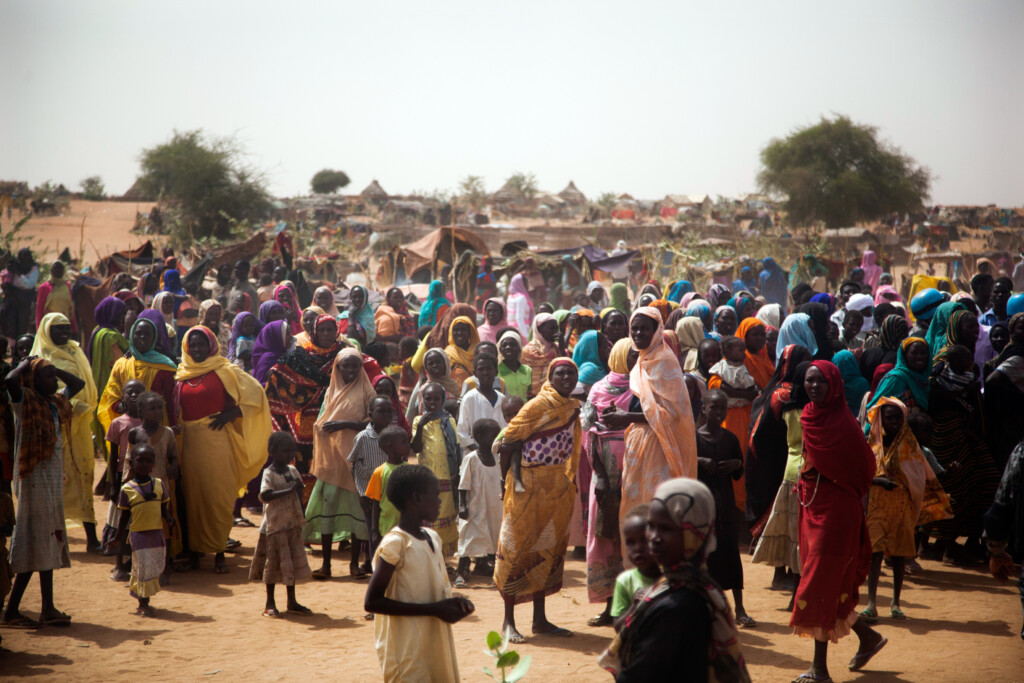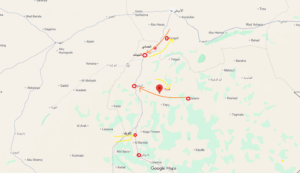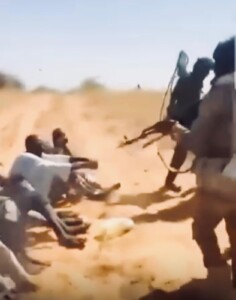Sudan: Famine declared in North Darfur capital

Displaced people in Zamzam camp in El Fasher, North Darfur (File photo: Albert González Farran / UNAMID)
The Famine Early Warning Systems Network (FEWS NET) have declared a famine in Zamzam camp in El Fasher, as violent conflict continues between the Rapid Support Forces (RSF) and the Sudanese Armed Forces (SAF) in the North Darfur capital for the sixth consecutive day.
FEWS NET confirmed in an alert published yesterday that reasonable evidence indicates famine thresholds (IPC Phase 5) were exceeded in Zamzam camp for displaced people south of El Fasher, the capital of North Darfur, in June.
Famine is also likely in two other camps in the El Fasher area, Abu Shouk and El Salam (aka Abuja camp), “but limited available evidence reduces the ability to confirm or deny a classification”, the network states.
“We know that famine is widespread among the displaced in El Fasher, where around half a million people are currently sheltering,” said Lark Walters, an adviser at FEWS NET. “Without an end to this conflict, and in the absence of large-scale humanitarian food assistance, extreme human suffering will persist.
The network estimates a risk of famine in the rest of El Fasher, home to an additional 800,000 people, if the blockade prevents them from fleeing to safer areas in search of food and income for an extended period.
“While FEWS NET is deeply concerned about El Fasher, the widespread conflict is driving the risk of famine in many other areas of Sudan, including greater Darfur, parts of South Kordofan, and Khartoum,” Walters added.
A displaced woman in Zamzam camp, who arrived from El Wehda neighbourhood in El Fasher in early May, told Radio Dabanga she “lived without food” after her crops were plundered, adding that children in El Fasher “are forced to work in the markets to provide for their families”. The World Food Programme (WFP) has allegedly been unable to distribute food since May.
Human rights activist Siham Hasan spoke to Radio Dabanga about the “catastrophic and tragic” lack of water and food in the camp, warning of a humanitarian disaster. She highlighted the famine threat in the camp, noting that most recent arrivals are farmers who have been unable to cultivate crops due to the siege.
Ismail Khareef, a leader of the displaced in Abu Shouk camp, told Radio Dabanga that they are living in dire humanitarian conditions due to a severe shortage of food supplies. He noted the “unprecedented rise in food prices, lack of job opportunities, and closure of markets and shops”. Khareef warned of increasing malnutrition among women and children.
Already in February, Médecins Sans Frontières (MSF) warned that “all emergency thresholds for malnutrition have been reached” in Zamzam camp, lamenting that “an estimated one child is dying every two hours”.
Doctors strike
Doctors and medical staff at the Saudi Hospital in El Fasher went on strike on Thursday due to repeated shelling. Residents told Radio Dabanga that artillery shelling occurred this morning in the northeastern part of the city, “near Abu Shouk camp and the university”.
A local who requested anonymity for security reasons told Radio Dabanga that doctors and medical staff at the Saudi Hospital went on strike, demanding the hospital be relocated to a safer location, after it was bombed on Monday. “The doctors refused to accept new patients or begin treatments. One person died after arriving at the hospital without receiving medical care”, according to local accounts.
MSF reported that the bombing of the Saudi Hospital, originally a specialised maternity hospital, killed three caregivers and injured 25 people, “marking the tenth time a hospital had been hit” in the city since fighting resumed in May.











 and then
and then